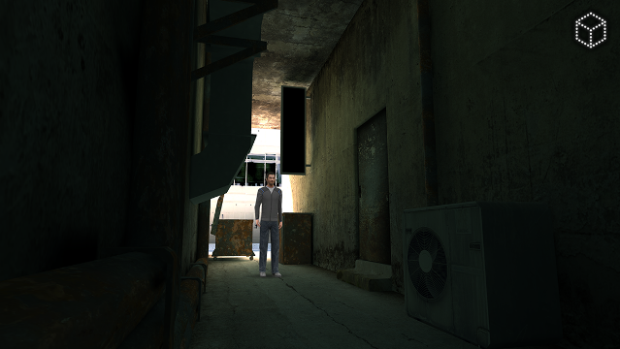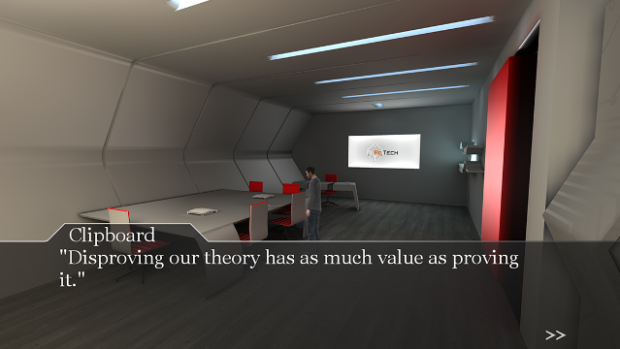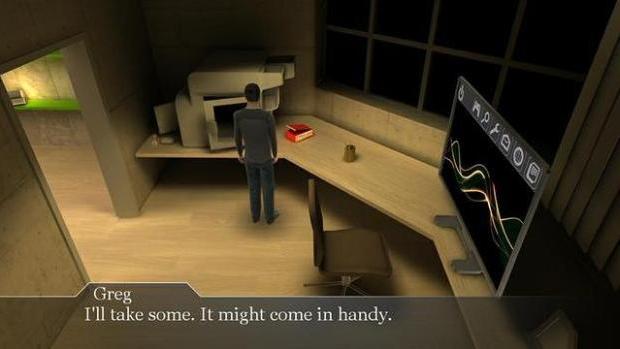Lost Echo Review
Adventure games have seen somewhat of a resurgence in the last few years. Great games such as The Walking Dead and Superbrothers: Sword & Sorcery have enjoyed success both commercially and critically. Crucially, both of these titles were available on mobile devices. Lost Echo, from indie developer KickBack Studios, hopes to join the group of great mobile adventure games, with an intriguing story and intuitive controls.
Lost Echo certainly starts off with a bang. After a very brief conversation in a futuristic style park, protagonist Greg is hurled to the ground by what appears to be an explosion of some kind and eventually wakes up in hospital, where he is told he may have minor brain damage.
As time goes by, Greg realizes that the woman who he held a conversation with before the explosion is missing and sets out to find her. Calling on old friends and new acquaintances to help, it quickly becomes clear that there is more to the explosion in the park than meets the eye. What follows is a few short hours of an engaging story, told via not-so-engaging interactions.

None of the characters in the game are fully voice-acted, and interactions are all text based, which unfortunately makes it quite difficult for emotions to be truly portrayed. Despite this, the story itself is still very entertaining and has a few twists that you certainly won’t see coming.
The futuristic world in which Greg lives is beautifully designed and created. Impressively for a mobile title, every location is in fully-rendered 3D and the environments are very detailed. Buildings look realistic (or as realistic as futuristic buildings can look) and items, foliage and interiors look almost as good as an early current-gen console title. The only slight shortcoming in the visuals is the character models and animations, which are very block like and can appear unnatural as a result; it’s not game-breaking but can be annoying.
The environments are definitely some of the best I have seen on mobile, but this doesn’t mean they are perfect. They are unfortunately the main source of bugs in the game. There were two separate occasions where interacting with an object caused the game to crash or become unresponsive.

The beautifully designed locations do mean that most are quite small, and thus the puzzles aren’t particularly difficult, as there is generally only a limited number of items to interact with. None of the puzzles in the game became frustrating, but a few did have me stumped for quite a while, – although, somewhat surprisingly, these were mostly towards the start of the game.
Being quite small makes the environments very easy to traverse. Tapping once on the screen will make Greg walk to that location and double-tapping will make him run. Tapping an item will start an interaction; sometimes this will result in a mini-game style movement puzzle and sometimes it will just bring up some text.. Unfortunately, the movement puzzles are few and far between, but those that are available, such as winning a near-completed game of chess or dismantling a gun, are both challenging and very entertaining.
As with most games in the genre, Lost Echo has poor replay potential. The puzzles do not change and the story does not have the same impact on the second play-through. This, combined with the short lifespan (about 3-4 hours at most), leaves you wanting more – and a few more complex puzzles or locations would have been a great addition.

VERDICT: Lost Echo is not quite on the same level as other big hitters in the genre, but it’s very close. The story is definitely the highlight; it both intrigues and excites and the latter stages are an absolute joy to consume. The puzzles needed a bit of work to make them more complex, but overall they do their job quite well. Simple controls and amazing areas to explore make the game a pleasure to play, I just wish there was more of it to enjoy.

GOOD. A game that scores 7/10 is worthy of note, but unworthy of fanfare. It does many things well, but only a few of them incredibly well and, despite a handful of good qualities, fresh ideas and solid mechanics, it fails to overwhelm.





